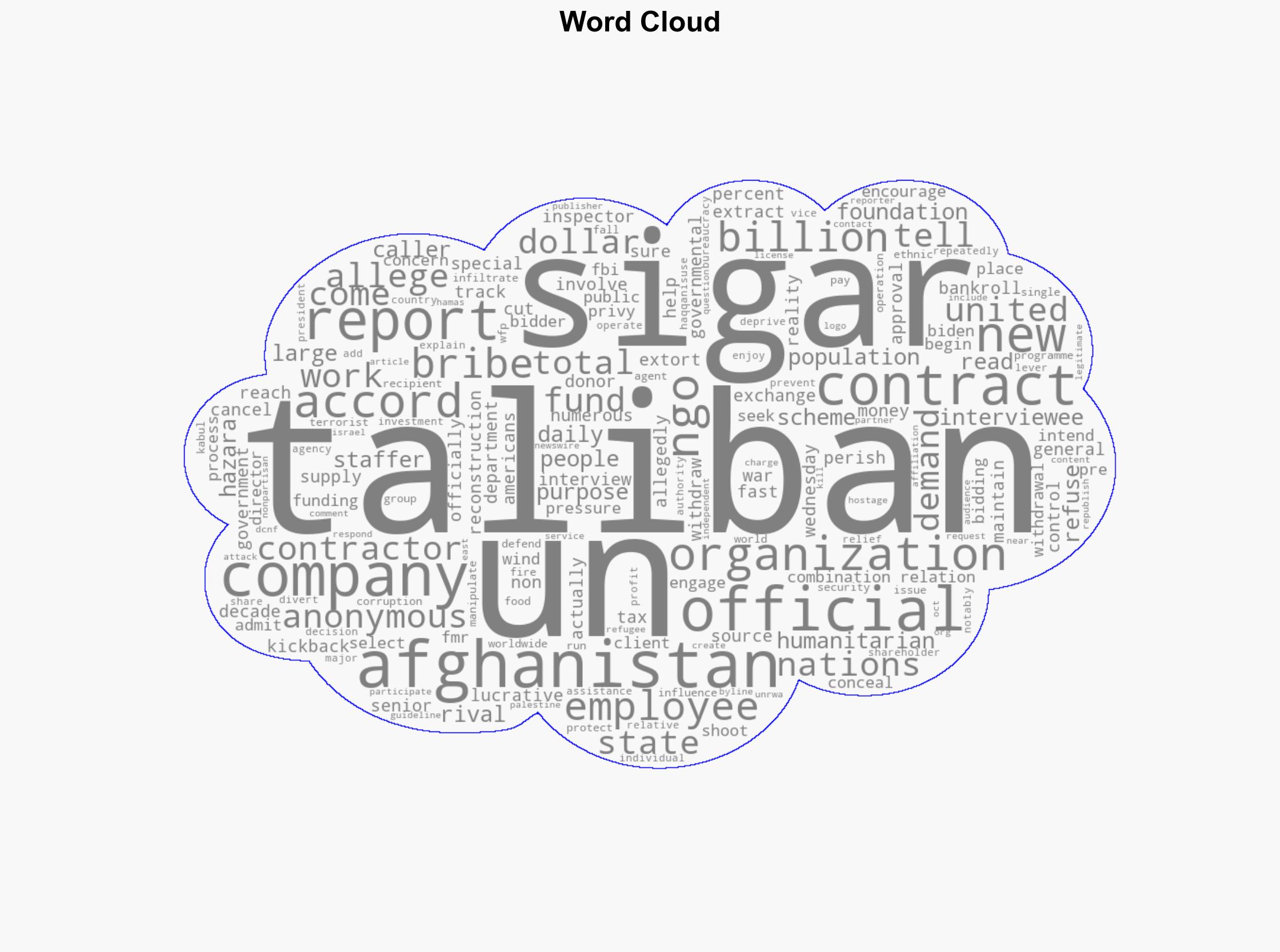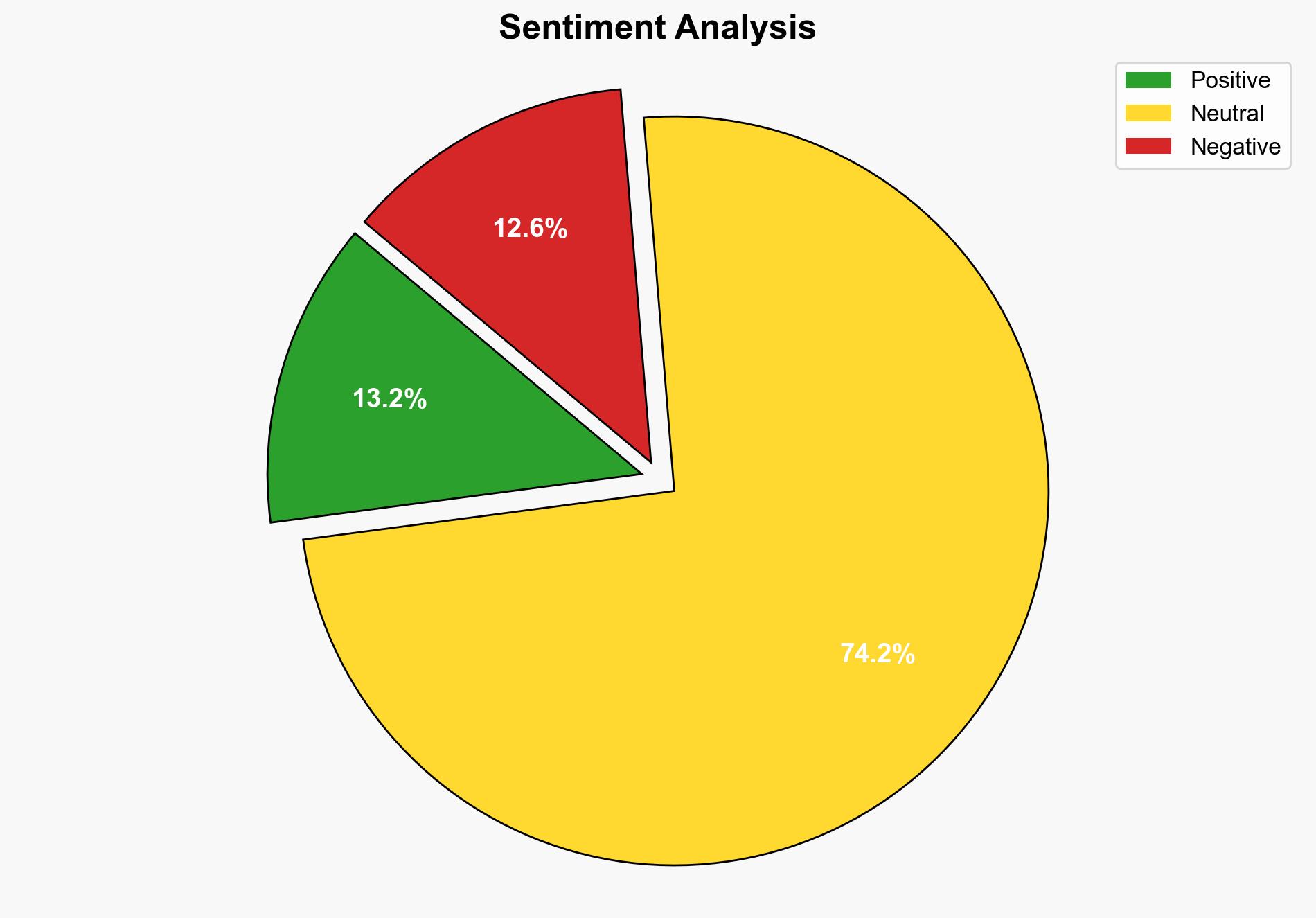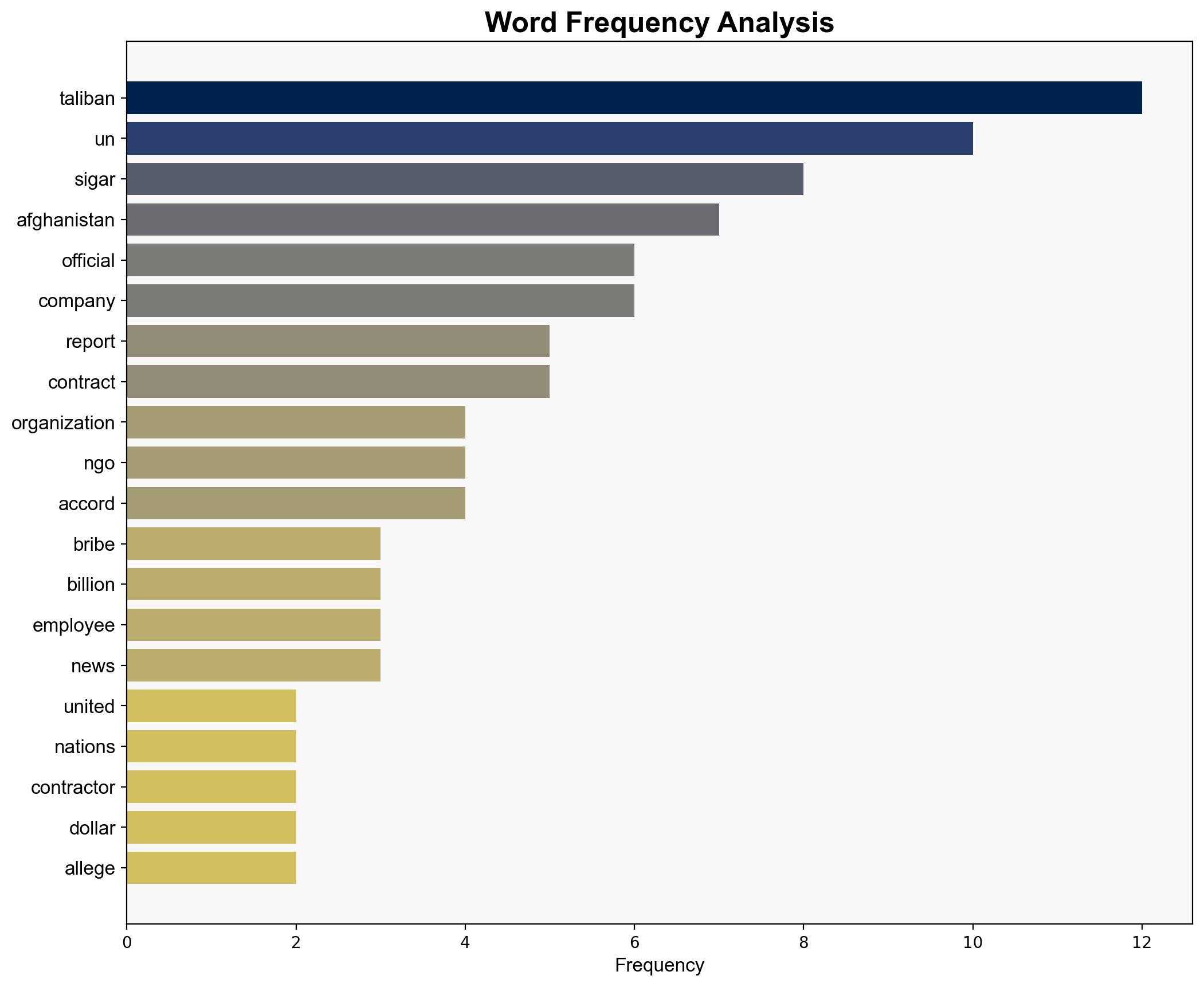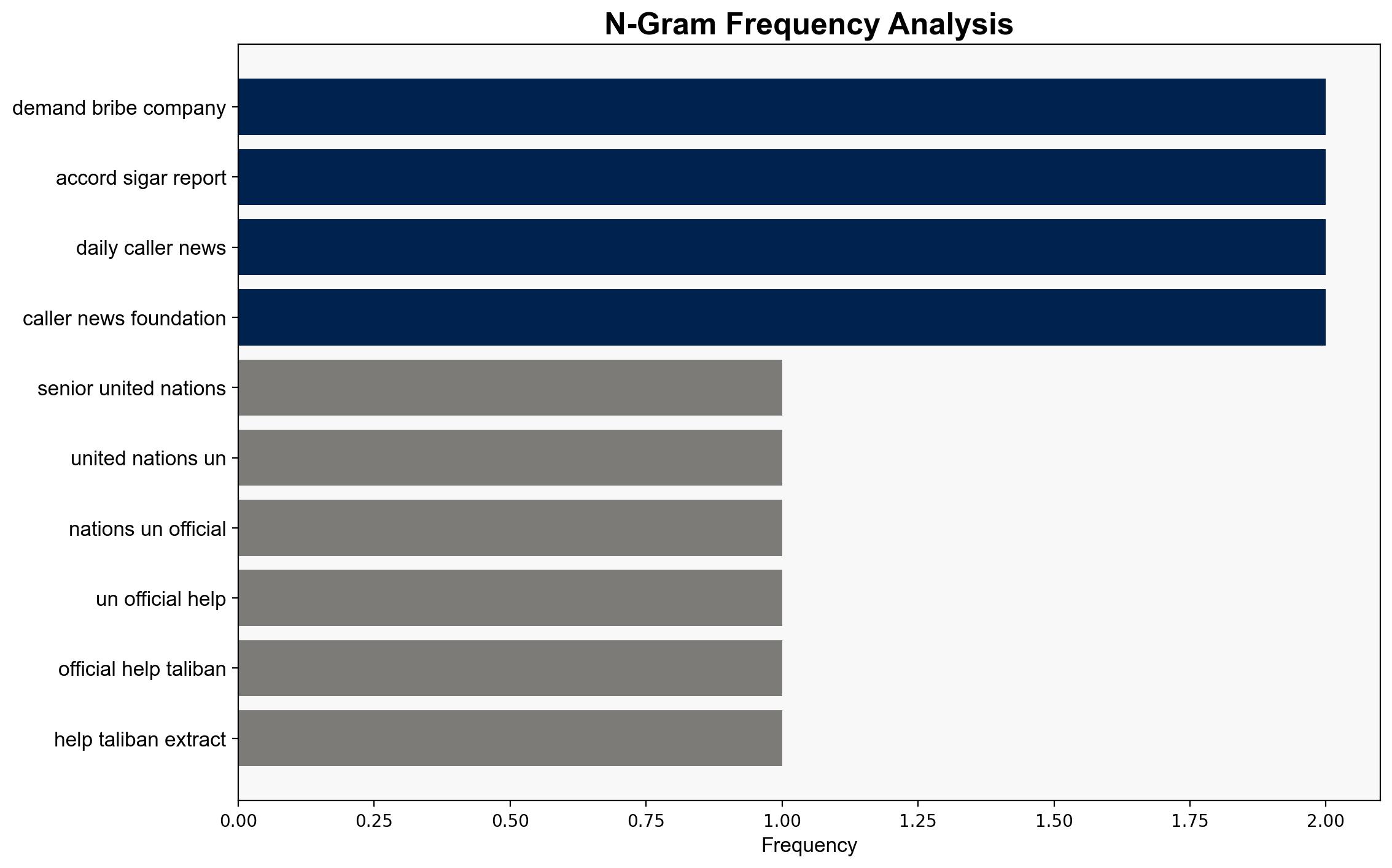Senior UN Officials Colluded With Jihadis Responsible For Thousands Of American Deaths Watchdog Says – The Daily Caller
Published on: 2025-08-13
Intelligence Report: Senior UN Officials Colluded With Jihadis Responsible For Thousands Of American Deaths Watchdog Says – The Daily Caller
1. BLUF (Bottom Line Up Front)
The most supported hypothesis suggests that certain UN officials may have been involved in corrupt practices with the Taliban, potentially diverting funds intended for humanitarian aid. Confidence in this hypothesis is moderate due to reliance on anonymous sources and lack of corroborative evidence. Recommended action includes a thorough independent investigation into the allegations to ascertain the veracity and scope of the collusion.
2. Competing Hypotheses
Hypothesis 1: Senior UN officials colluded with the Taliban to divert funds through kickbacks and bribes, compromising humanitarian aid efforts in Afghanistan. This is supported by multiple anonymous sources cited in the SIGAR report, suggesting systemic corruption and manipulation by the Taliban.
Hypothesis 2: The allegations are exaggerated or misrepresented, possibly due to misinformation or bias from sources with vested interests. The complexity of the situation in Afghanistan and the challenges of operating in a conflict zone may have led to misinterpretations of standard operational difficulties as corruption.
3. Key Assumptions and Red Flags
– **Assumptions**: Hypothesis 1 assumes that the anonymous sources are credible and that the SIGAR report accurately reflects the situation without bias. Hypothesis 2 assumes that operational challenges in Afghanistan could be misconstrued as corruption.
– **Red Flags**: Heavy reliance on anonymous sources without corroborative evidence raises questions about the credibility of the claims. The lack of direct evidence linking UN officials to the alleged activities is a significant gap.
– **Potential Bias**: The source, The Daily Caller, may have a particular editorial stance that influences the presentation of the information.
4. Implications and Strategic Risks
– **Geopolitical Risks**: If true, these allegations could severely damage the credibility of the UN and its operations in conflict zones, impacting international relations and aid effectiveness.
– **Economic Risks**: Misappropriation of funds could lead to reduced donor confidence and funding, affecting humanitarian efforts in Afghanistan.
– **Psychological Risks**: Perceptions of corruption could undermine morale among aid workers and beneficiaries, potentially leading to decreased cooperation and increased hostility.
5. Recommendations and Outlook
- Conduct an independent investigation to verify the allegations and assess the extent of any collusion or corruption.
- Implement stronger oversight and transparency measures in UN operations to prevent future occurrences.
- Scenario Projections:
- Best Case: Allegations are disproven, leading to restored confidence in UN operations.
- Worst Case: Allegations are confirmed, resulting in significant reputational damage and reduced funding.
- Most Likely: Partial confirmation of allegations, leading to reforms and increased scrutiny of UN operations.
6. Key Individuals and Entities
– The Taliban
– United Nations (UN)
– Special Inspector General for Afghanistan Reconstruction (SIGAR)
– World Food Programme (WFP)
– United Nations Relief and Works Agency for Palestine Refugees in the Near East (UNRWA)
7. Thematic Tags
national security threats, cybersecurity, counter-terrorism, regional focus





